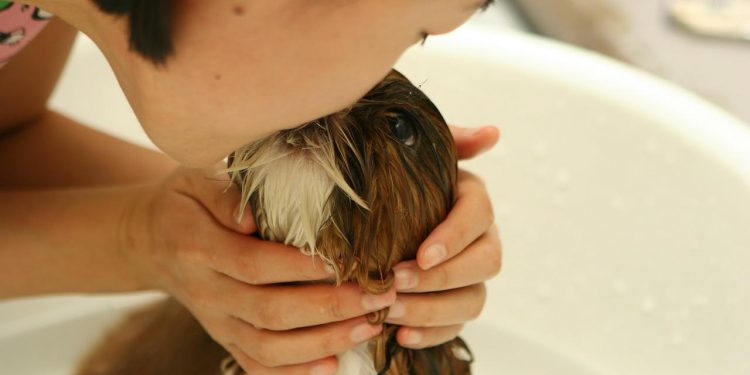The Spanish “Public” daily website recently reported that pets have the ability to improve our health.
Our pets contribute more to our physical and mental health than we can imagine. It is our responsibility to take care of them; at the same time, it is always good for us to feel their love, to have them play and walk around our feet every day, and spend a good leisure time with us, it makes us feel better.
But do we really know what power pets use to improve our health? Here are some answers that are yet another reason why we should treat our pets more as family members and give them the care they deserve.
One of the main reasons that being around pets can make us physically and mentally happy is hormones. That is, if you look at it from a chemical point of view, scientific research shows that at the moment of petting a pet, the human body secretes oxytocin. The name of this hormone may sound familiar to you because it’s also known as the “love hormone.” In addition to helping us reduce anxiety and stress, it can also have a calming effect.
Dopamine and serotonin are also secreted when we are happy with our pets, both of which are associated with well-being. As a result, people who care about their pets, enjoy playing with them, and share quality time tend to have better moods, lower cortisol levels, better blood pressure, and lower odds of depression than those who don’t care about pets . Research has shown that even watching fish swim around in an aquarium can reduce anxiety levels and make you more relaxed.
All people who interact with animals regularly, lovingly and caringly, will notice how their self-esteem improves. In addition, they can gradually learn to control impulsive emotions. If you have a pet, having a pet as part of the family means learning to take responsibility and also helping to develop good habits.
This is especially important for children. We must also teach them to respect the moments when small animals don’t want to play, and they also need to rest or be alone. In this way, children can also learn to be empathetic and respectful when interacting with others.
But don’t forget, right from the start, kids should understand that pets are not toys, they’re creatures with feelings just like them, and it’s a responsibility to take care of them. This way your child can benefit from having a pet, develop good habits and have empathy for those around them.
Taking care of the animals that accompany us can also improve our physical health, especially our cardiovascular health, since pet ownership compels us to stay physically active. Taking your dog out for a walk a few times a day is undoubtedly good for increasing our physical activity, and no matter how lazy you are, the necessity of walking your dog will force you to maintain such a healthy habit.
On the other hand, having pets helps prevent social isolation. In fact, it’s easier to improve your social skills if you have a pet. For example, when you’re out walking your dog, you may be talking to other dog owners, and kids will gather around.
Contact with animals is so important to our health that so-called assistance and therapy dogs are essential. The former are those who have been trained to help people with intellectual or physical disabilities, such as guide dogs; the latter can participate in some treatments to get better results for the patient.
Likewise, these trained animals can help reduce patient stress, anxiety, and promote the production of healthy hormones in a home or hospital setting.
Dogs are also used in group therapy for children with ADHD. Even recent research suggests that trying to care for fish in the aquarium can be beneficial for teens with diabetes, as they learn to better improve their health as they learn the relevant care procedures.
With all that said, it’s no surprise that living with pets and its beneficial effects on people’s health is known as the “pet effect.” Of course, people are different and have different needs, so more research is needed on the impact of pets on our health.




















